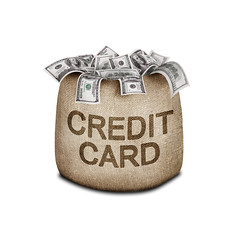- Crap. Replacing the power jack on my laptop means ordering out for the piece. #
- @mymoneyshrugged Engraved pocket knives were a hit with my groomsmen. in reply to mymoneyshrugged #
- Movies that force previews suck. Dangit, Invention of Lying. #
- RT @Lynnae Carnival of Personal Finance #148 http://bit.ly/adRZQo #
- @jimmyjohns – 35 minutes is not "so fast I'll freak". #
- @jimmyjohns "Can you send the store info to bit.ly/jjfeedback? Thx!" – Done. Normally service is excellent. in reply to jimmyjohns #
- Pizzeria with the family. Yum! #
- RT @FrugalYankee: Fact: In 1873, there were 4131 beer breweries pumping in the US. 1973 only 41 brewers operating 89 plants. Now around 1500 #
- Mango pudding is the king of all nummy. #
Selling Your Home: For Sale by Owner
- Image by Casey Serin via Flickr
When you’re preparing to sell your home, your first instinct is often to rush straight to a realtor. There are benefits to using a trained real estate agent, but it isn’t always necessary.
The biggest motivation to skip the realtor is avoiding the fees, which can run as high as 7% or more in some places. What does that 7% get you?
First, it gets you experience. Realtors know which hoops you have to jump through, from both a legal and a marketing perspective. Do you need an inspection? How much of your stuff should you move to storage? Are you comfortable with high-dollar negotiations?
Time is another critical item in the fee. Do you have a minimum of an hour to dedicate to advertising and screening potential buyers? Every day? Do you have a flexible schedule to show your house at times convenient for the buyers?
The third element is access to the Multiple Listing Service(MLS), which lets other realtors see your home listing. There are alternative listing services you can use, but none are as widely know as MLS.
There are some good reasons to use a realtor, but none of that means you can’t sell your home yourself. FSBOs are done every day.
If you are nervous, your local community education program may have a course on selling your home yourself. These courses are usually very affordable.
Some tips:
- Be objective about pricing. Look at the selling price of similar homes in the area, NOT what your dream price is or how much you have spent on improvements.
- Always keep your home ready to show. Keep the dishes done, everything put away, and the floors mopped. The “lived-in” look will not help your house sell.
- Keep track of the potential buyers. Put the name, address, phone number, and any identifying notes in a spreadsheet so you can follow up later if your house doesn’t sell.
- A bid is not binding. Don’t stop advertising until you close on the sale.
- Make a fact sheet and blank purchase agreement that potential buyers can take home.
- Hire professionals where necessary: lawyers, inspectors, and closing agents.
Selling your home yourself can be intimidating, but it is a job you can tackle yourself for a significant savings. Would you try it?
Back to Cash
It appears that I can’t be trusted with a credit card.

At least, not a credit card that gets used for our regular shopping.
Over the past few months, our spending has slipped past our budget by more than I like. The problem appears to be that it’s really easy to toss “just one more thing” in the cart when there’s no hard limit on how much is available to spend at the register.
If you do that a few time, it’s easy to find yourself $1000 over budget.
Ouch.
If it weren’t for my side hustles, we’d have been growing our debt recently.
As of the beginning of this month, our credit card has once again been relegated to automatic bills, the gas station and online purchases.
No more groceries, no more scrapbooking stuff, and no more restaurants.
I would have done this sooner, but we were so far over budget that I didn’t have the cash to yank out all at once to cover our month’s expenses. We ended last month at a good place, so I went for the clean break and withdrew all of our day-to-day spending on the first. When I got home, it went straight into envelopes so we know what we’ve got to spend this month.
Bye-bye, credit cards!
Regret
There comes a time when it’s too late to tell people how you feel.
There will come a day when the person you mean to talk to won’t be there. Don’t wait for that day.
“There’s always tomorrow” isn’t always true.
Olivia Wilde is Having a Baby: What are the first-month expenses?

Olivia Wilde recently announced her pregnancy with fiance Jason Sudeikis as she’s due with her first child in the coming year. Although the couple have declined to reveal their due date, they likely are expecting to set aside a budget for their baby, even with their high incomes. With forty percent of moms saying that having a baby is more expensive than they initially assumed, it’s important to look at the overall costs in the first month for plenty of preparation and financial planning.
Food
The first-month’s expenses can slightly range, depending on if the mother is using formula to feed the baby or is breastfeeding.
Breastfeeding is free and will not cost a dime, besides the breastfeeding supplies that cost an average of $15 in the first month due to nursing pads and milk storage bags for freezing.
Name-brand formula can be expensive, an average cost of $25 a week as the baby will be feeding on it several times a day, totaling about $100 in the first month. Generic brands of formula cost half the amount, an average of $12 a week.
Medical
Health insurance is one of the most expensive costs for newborn babies with 39 percent of mothers paying $1,000 with their childbirth. Some even pay at least $5,000. Health insurance will also likely increase to $200 a month for the child with co-pays that range from $30 to $100 per visit. Some health insurance will refuse to cover certain costs, which include vaccines and immunizations.
Daycare
Paid maternity leave is considered a luxury in the U.S. and is often unavailable for mothers who are self-employeed or do freelance work, making daycare a necessity. Daycare for newborns averages to $100 a month, but can be at least $1,000 for celebrities that use an in-home nanny.
General Care
Wipes will cost an average of $13 in the first month with a $5 increase in the water bill for the baby’s laundry and baths.
Diapers are one of the scariest expenses that are priced at $80 for basic Pamper diapers for newborns. Using cloth diapers are a one-time expense, so if provided by a friend or relative at a baby shower, they are free to use consistently and do not require much water or detergent to wash every other day.
Bath soap, detergent, and baby-safe shampoo will cost $30 a month to maintain the hygiene of your baby.
Although Olivia Wilde’s baby will be unique in its feeding habits and the materials for diapers used, the average cost in the first month will likely total $200 and can go as high as $4,000 for a celebrity. Many of the costs simply depend on the baby and are determined by the type of diapers used, the amount of doctor visits, daycare that may be needed, and whether the baby prefers breastfeeding or feeding on formula.
Related articles
Twitter Weekly Updates for 2010-06-05
- Working on my day off and watching Teenage Mutant Ninja Turtles. #
- Sushi-coma time. #
- To all the vets who have given their lives to make our way of life possible: Thank you. #
- RT @jeffrosecfp: While you're grilling out tomorrow, REMEMBER what the day is really for http://bit.ly/abE4ms #neverforget #
- Once again, taps and guns keep me from staying dry-eyed. #
- RT @bargainr: Live in an urban area & still use a Back Porch Compost Tumbler to fertilize your garden (via @diyNatural) http://bit.ly/9sQFCC #
- RT @Matt_SF: RT @thegoodhuman President Obama quietly lifted a brief ban on drilling in shallow water last week. http://bit.ly/caDELy #
- Thundercats is coming back! #
- In real life, vampires only sparkle when they are on fire. -Larry Correia #
- Wife found a kitten abandoned in a taped-shut box. Welcome Cat #5 #






